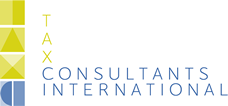Payroll & HR services Global Mobility Services International labor and cross border assignments Payroll & HR Tax compliance
An overview of the Dutch social security contributions (national insurance and employee insurance)
In essence every Dutch resident is subject to national social insurance contributions (in Dutch: “volksverzekeringen”).
The levy of national social insurance contributions is integrated in the levy of income tax/wage tax, but based on different laws and policies which in many cases will not fully coincide the with the levy of Dutch wage tax and/or personal income tax.
The Dutch national social insurances include:
- the General Old Age Act (in Dutch: 'Algemene Ouderdomswet' or 'AOW'), which provides for a state pension as from the age of 66 plus 10 months (2023);
- the General Widows/Widower and Orphans Act (in Dutch: 'Algemene nabestaandenwet' or 'Anw'), which provides for a state allowance for qualifying widows/widowers and orphans;
- the Act on long-term care (in Dutch: 'Wet langdurige zorg' or 'Wlz'), which provides for compensation for those who need long-term and intensive care.
The national social insurances in essence apply to all resident taxpayers in the Netherlands who earn income from labor or main residence and non-resident tax payers who earn such income or who are covered by the Dutch national social insurances on the basis of an international social security treaty or regulation.
The amount of the national social insurance contributions is dependent on the personal circumstances of the taxpayer and the amount of income earned. The premiums are integrated in the first two brackets of the Dutch income tax levy. For more details we refer to the section Tax rates for individuals.
In case an individual is covered by the Wlz of the Dutch national insurance, he/she is also covered by the Dutch health care system (in Dutch: 'Zorgverzekeringswet' or 'Zvw'). The Zvw contribution is in principle only levied from employers. When there is no withholding agent (for instance for self-employed people) the Zvw contribution is levied by assessment at the end of the tax year.
The amount of the Zvw contribution is dependent on the personal situation of the taxpayer and the kind of income he/she enjoys. The 2023 maximum percentage is 6.68% (6.75% in 2022) of qualifying income, but with a maximum of qualifying income of € 66,956 (€ 59,706 in 2022). The maximum annual contribution is thus € 4,473 in 2023 (€ 4,030 in 2022).
Apart from the national social insurance contributions, resident and non-resident tax payers who earn income from employment and have not reached the General Old Age of 66 and 10 months (2023) , can be subject to employees’ insurance contributions (in Dutch: 'werknemersverzekeringen').
The employees’ insurances include:
- the Unemployment Act (in Dutch: 'Werkloosheidswet' or 'WW'), which provides for a (limited) state allowance in case of unemployment;
- the Labor Disability Act (in Dutch: 'Wet op de arbeidsongeschiktheidsverzekering' or 'WAO'), which provides for a (limited) state allowance in case of long term disability of an employee that became ill before 2004;
- the Act work and income for the capacity to work (in Dutch: 'Wet werk en inkomen naar arbeidsvermogen' or 'WIA'), which provides for a (limited) state allowance in case an employee became ill after 2004 and is still not able to work fulltime after 2 years of illness;
- the Sickness Act (in Dutch: 'Ziektewet' or 'ZW'), which provides for a (limited) state allowance in case of illness of individuals who are employed for a definite period, such as individuals working for an employment agency or individuals who receive an unemployment allowance.
All employees’ insurance contributions are in principle levied from and borne by the employers. The premiums are levied by the Dutch tax authorities.
For the General Unemployment Fund (Dutch: 'Awf') there is a differentiated premium, 2.64% in 2023 for employees with an indefinite contract (2.7% in 2022), and 7.64% in 2023 for definite and flexible contracts (7.7% in 2022).
The Disability fund (Dutch: 'Aof') is also a differentiated premium that depends on the size of the employer. For small employers, the premium amounts to 5.82% in 2023 (5.49% in 2022) and for medium and large employers, the premium amounts to 7.11% in 2023 (7.05% in 2022).
The healthcare premium amounts to 6.68% in 2023 (6.75% in 2022). In addition to these premiums, a variable premium is due. The variable premium provides for a range of percentages which vary per industry.
The taxable basis for the employees’ insurance contributions is the 'premium income'. The premium income is maximized on an amount per day.


.png)



